CONFEST/CONFEGE
IBGE discusses SINGED governance during the Digital Era Conference
July 30, 2024 05h28 PM | Last Updated: July 31, 2024 10h42 PM
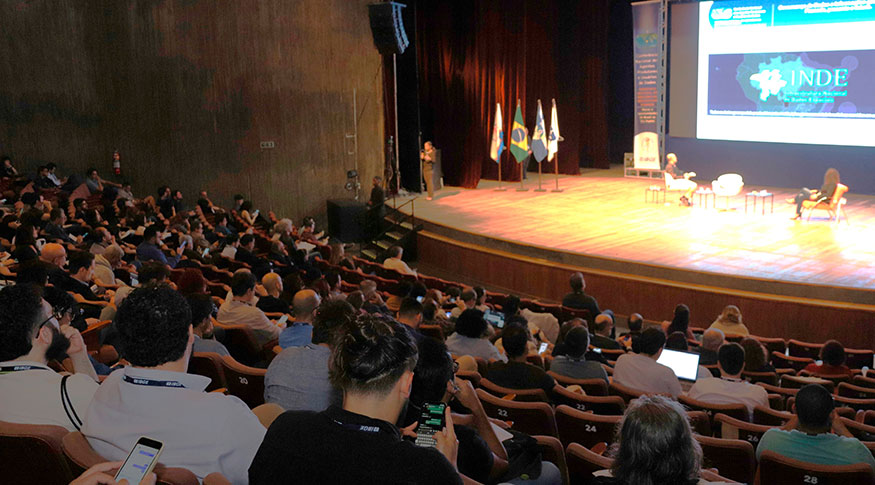
The governance of the National Sovereign System of Geoscience, Statistics and Data (SINGED) was the main topic of the round table “The Digital Era and its interfaces with State institutions”, organized by the Brazilian Institute of geography and Statistics (IBGE) on the second day of the National Conference of Data producers and Users, held in partnership with the State University of Rio de Janeiro (UERJ), at the Maracanã campus.
In the round table, which was streamed live by Digital IBGE, technicians, experts and representatives of State agencies, explored the current scenario of a participative coordination of geoscientific and statistical information and data, and analyzed the opportunities and risks inherent to the SINGED governance model, aligned with international recommendations and practices aiming at interoperability and sharing of data from the perspective of national data producers and users .
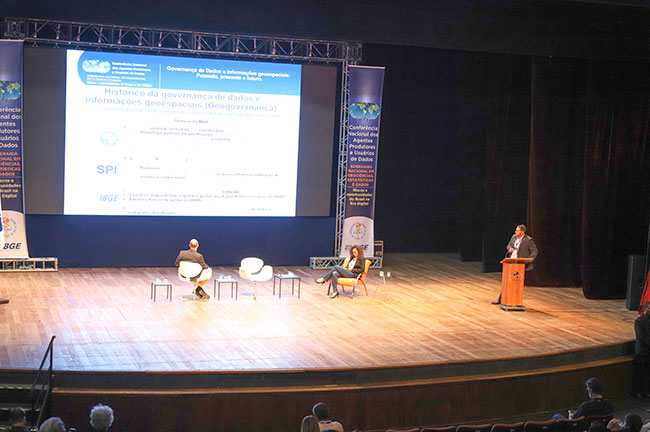
The IBGE director of Surveys, Elizabeth Hypólito, who mediated the round table, mentioned the series of debates that led up to the event. “We have three pillars that structure this Conference, which are governance, technology and data, as well as dissemination and communication. In order to arrive at these pillars, we carried out a project called 'IBGE 90 External Dialogues' and these were periods of much preparation and study, which became fundamental in maturing this debate and broadening it with other data producers and users of statistical and geospatial information.”
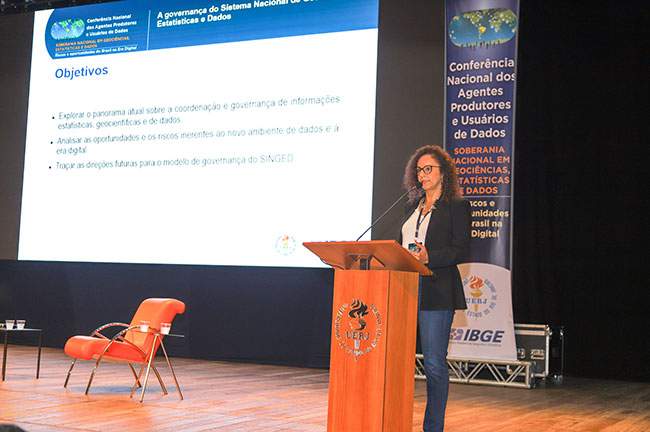
Rafael Lopes da Silva, General Coordinator for Demarcation at the Federal Property Secretariat (SPU), explained the use of geoinformation at the SPU, the history of data governance and geospatial information in the present scenario of data and information geogovernance. “The Secretariat seeks to solve issues such as the governance model, norms and policies, partnerships, stakeholder engagement, as well as related initiatives, data protection, but it certainly also requires investment and strong legislation.”
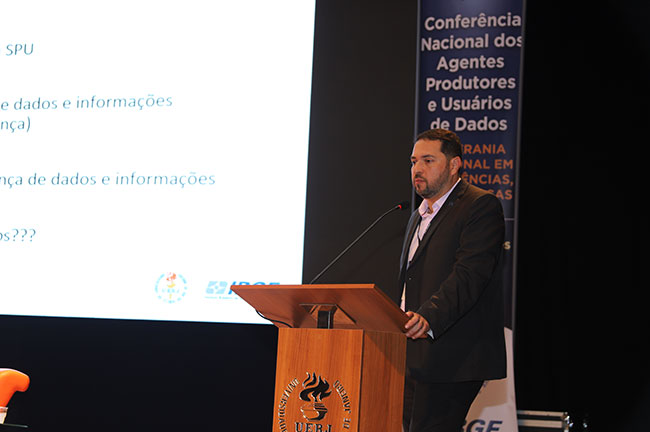
Renato Sérgio de Lima, CEO of the Brazilian Public Security Forum (FBSP), mentioned the networks of knowledge in the Governance of the National Statistical System. “We have identified two major common threads that interconnect to tell a brief history of the political, economic and social processes associated with the production of public statistics: the idea of a system, the existence of different bodies or data-producing agencies articulated in a coordinated and hierarchical way, as well as the idea that considers the existing institutional and legal architecture for the production of data.”
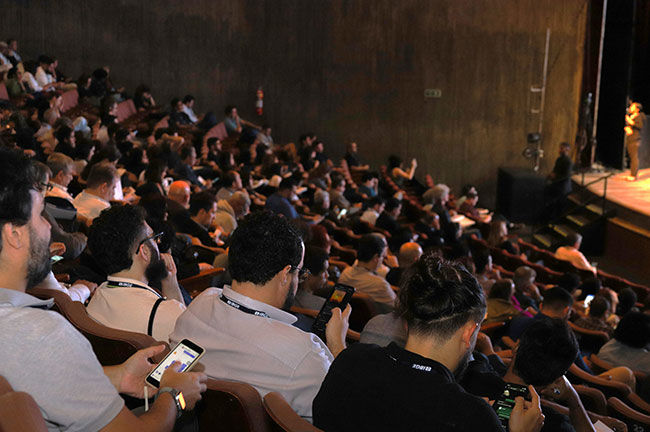
For Lima, the key issues for this discussion are: social networks, credibility, technologies and coordination spaces. “ It is important to invest in credibility, without being insensitive to the institutional debates on public policies. Our mission is to establish parameters for dialog and cooperation among different networks of knowledge and technical expertise, which will help portray what is happening in both Brazilian and global society.”
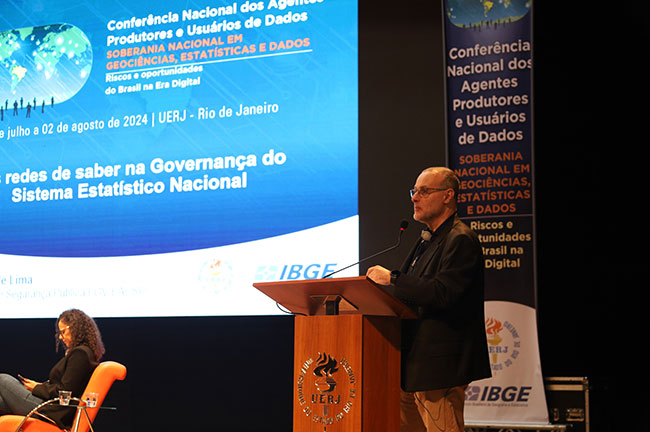
Miriam Barbuda Chaves, special advisor to the Ministry of Management and Innovation in Public Services (MGI), discussed infrastructure and sharing of data, explaining how the National Data Infrastructure works as “a set of norms, policies, architectures, standards, technological tools, information assets and human talent managed by different bodies”.
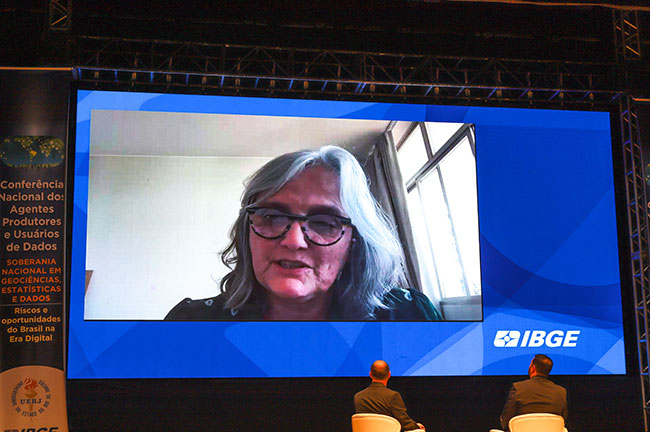
The special advisor mentioned the main data available on Conect.gov.br, such as criminal record certificates, military status and employment contract, and presented interoperability data and the Brazilian Artificial Intelligence Plan (PBIA) with topics such as infrastructure and development, dissemination, training and qualification, AI for business innovation and support for the AI regulatory and governance process.
The representative of the Brazilian Association of Black Researchers (ABPN), Iraneide Soares da Silva, emphasized that the Association is not a data producer, “but we are active subjects in this production. This discussion is indispensable, because this data is important for our academic thinking and as active subjects who research Brazilian society”.
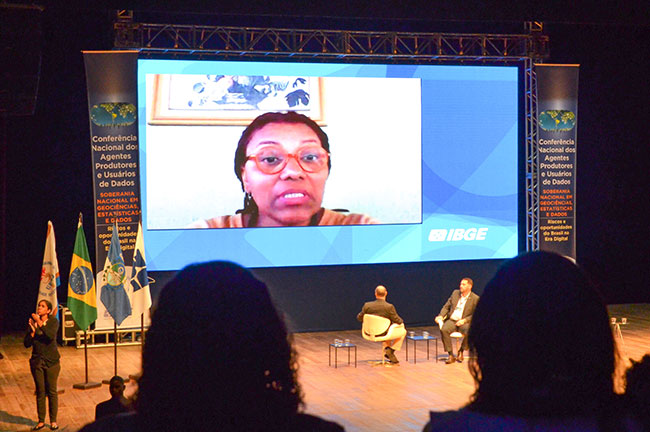
For Francisco Miguel Garcia Gonçalves de Lima, the president of the Portuguese National Statistics Institute (INE), the IBGE is a special example of a body that brings together Geography and Statistics. “This initiative of getting data from the private sector or administrative records is extremely important, and the scenario we have with this digitalization allows the citizen to interact privately with the State, providing more information and surveys to research institutes, such as INE and IBGE”, said the Portuguese.
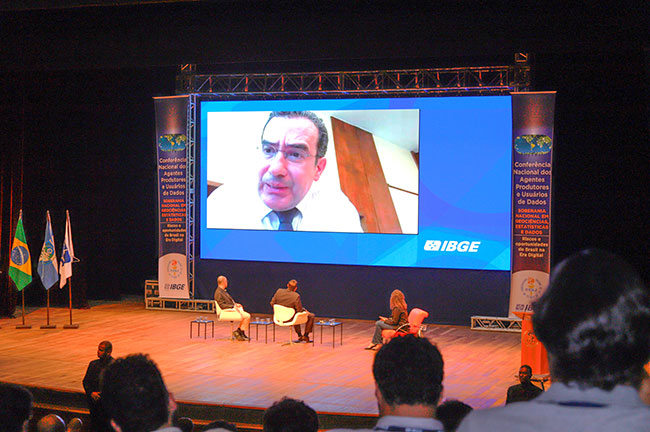
The Assistant Director of the United Nations Statistics Division, Ronald Jansen brought recommendations and relevant international practices for individual governance and robust data, consistent with the Brazilian needs for inclusion, from the perspectives of national users and producers of information. “A comprehensive global data governance framework needs to be achieved, the international community, multilateral entities, the private sector and popular initiatives will have to agree on a set of common principles, establish clear processes for making decisions and establish mechanisms to implement those decisions.”
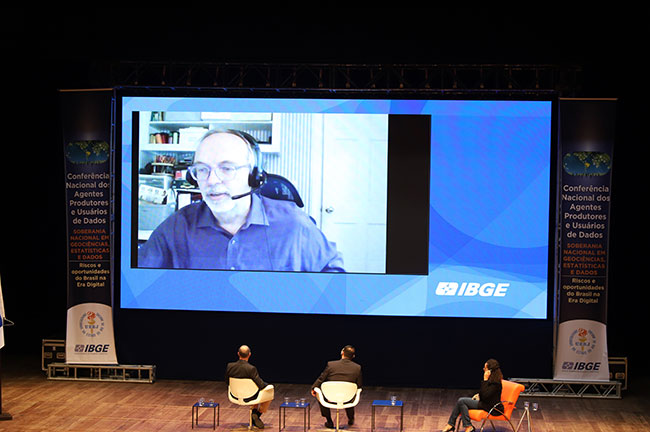
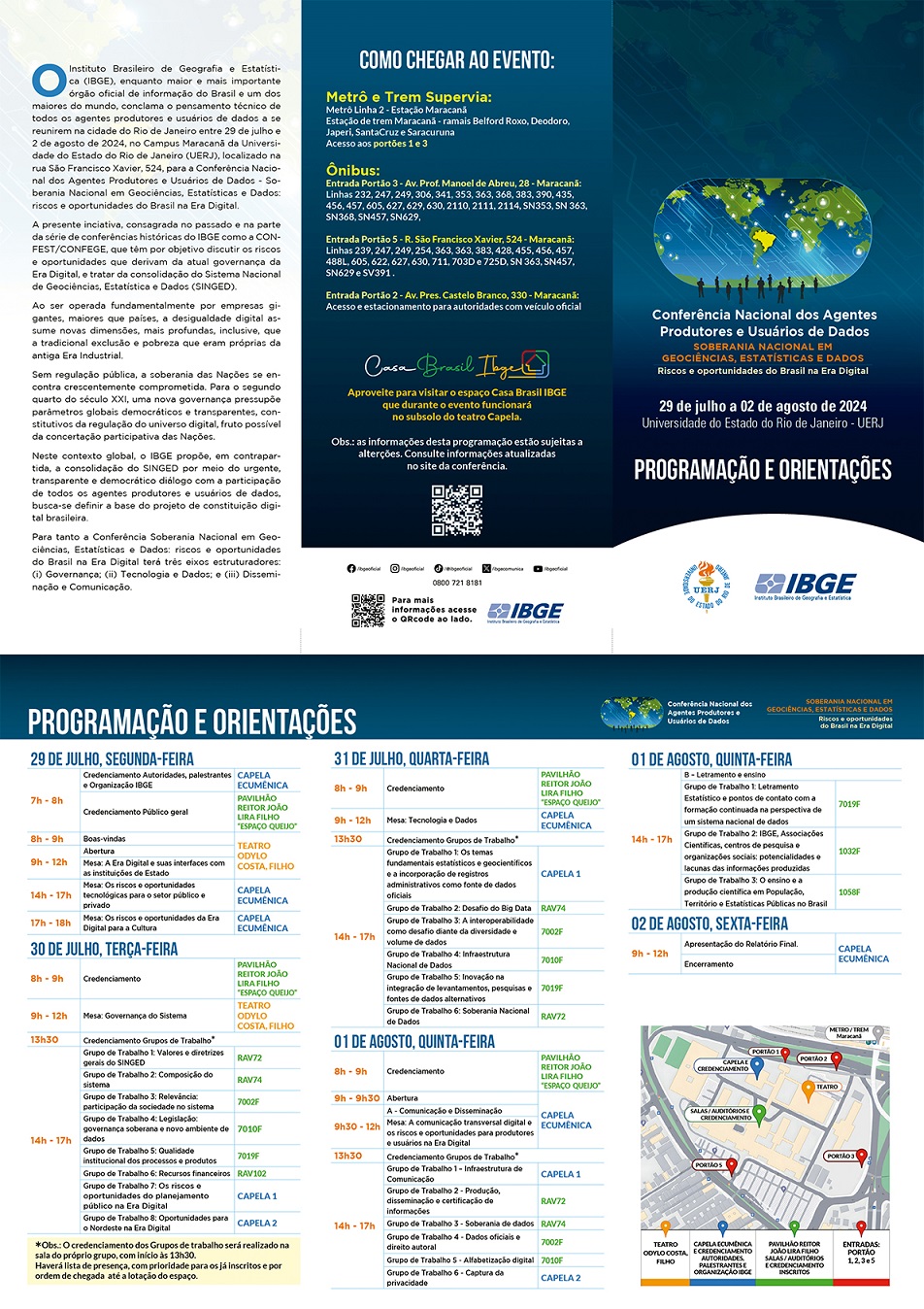
National Conference of Data Producers and Users
Venue: State University of Rio de Janeiro (UERJ)
Date: July 29 - August 02
Streamed on: Digital IBGE and Webex, for registered participants (except WGs)
Registration: IBGE Virtual Shop
Informações: Conference website
Document for the debate: Document for the dialogue




















